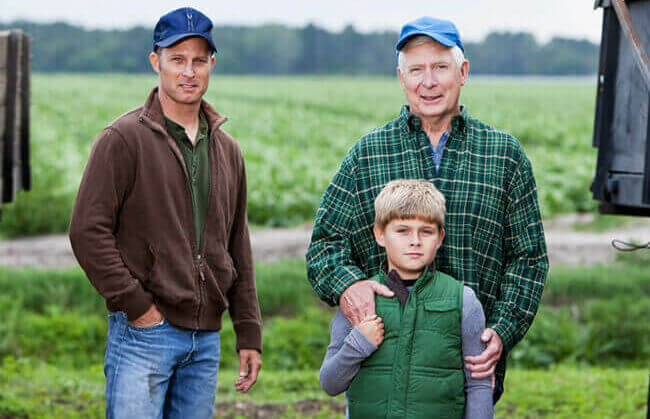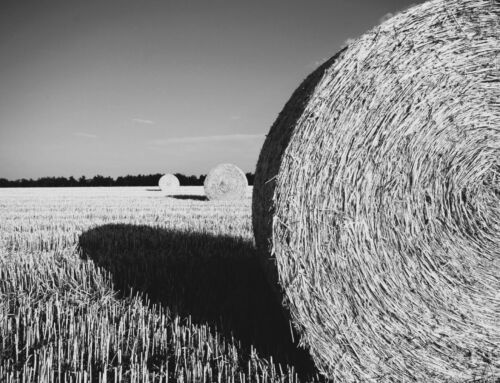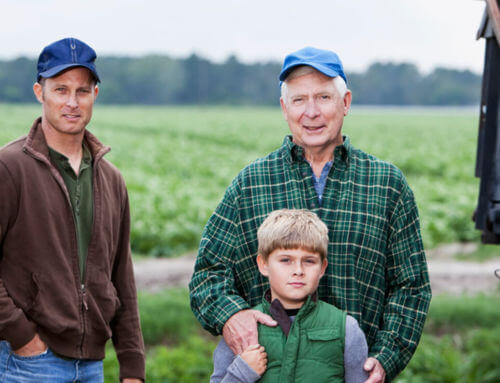
Risk of Underinsurance
There’s always a risk of underinsurance in a high inflation environment. Inflation is currently affecting the supply of goods and labour in the building industry, pushing rebuild and repair costs up.
It means that if an Australian farmer’s sums insured haven’t recently been reviewed, there is a higher risk of the farmer being underinsured, according to ARGIS Farm Underwriting Manager Peter Morsley.
Lack of awareness of replacement cost
There are two main reasons behind underinsurance on farms, Peter says.
The first is a lack of awareness of the true replacement cost of homes, buildings and equipment, and it’s an issue that materialises when prices change, such as during an inflationary event.
Peter says this type of underinsurance most commonly occurs when people use market value to determine the sum insured for their dwelling.
“Market value is not the same as the rebuilding cost. According to the Australian Bureau of Statistics, construction costs have risen 5% over the past 12 months.”
He added that other factors to consider avoiding underinsurance due to increased rebuilding costs are the costs of removing debris and demolition.
In bushfire-prone areas, Australians are required to rebuild to new building standards proportionate to their bushfire attack level (BAL) rating and there is the possibility of increased pricing due to demand surges following a major event.
Playing the odds
The second reason for underinsurance is when farmers deliberately choose to insure their property, assets and business for less than the replacement cost to save on premiums, playing the odds they won’t incur a total loss.
Peter contends that this can be a false economy particularly if they experience a total loss.
“With fencing and livestock, farmers will sometimes take a small nominal sum insured, thinking that they’ll only ever lose a small proportion unless there’s an event like a major bushfire,” he explains.
However, during the Black Summer bushfire event of 2019-20, many farms lost all their fencing, with replacement costs as high as $22,000 per kilometre in some affected states.
According to Peter, removing the contents section from a farm client’s policy is another common form of deliberate underinsurance. But he says the risk of losing cover extensions that come with contents cover sometimes needs to be considered.
It’s worthwhile considering that the contents section includes automatic cover extensions such as livestock and goods in transit, farming interruption and firefighting costs, all of which are important in the event of a loss.
The cycle of underinsurance
While some policies include underinsurance clauses that limit the proportion of the sum insured insurers will pay out in the event of underinsurance, some insurers choose not to.
Peter says not including this clause can help to protect insureds if a genuine error is made on a sum insured. It can also help the insured if external factors impact the cost of rebuilding in a short time within a policy period.
“But it also puts upward pressure on premiums for insurers, which contributes to the cycle of underinsurance we’re seeing, particularly following an unprecedented number of disasters in recent years,” Peter says.
“It’s a vicious cycle which means it’s more important than ever for farm insurance sums insured to be reviewed regularly to ensure they reflect current replacement values.”
The role of insurance brokers in preventing underinsurance
When it comes to buying farm insurance, advice from a well-informed insurance broker is vital.
To ensure the sums insured are accurate, insurance brokers need to consider each renewal on its merits, recommending new replacement cost valuations if required.
Insurance brokers should also remind clients to keep an up-to-date asset schedule and to contact them any time it changes – not just at renewal – so that a mid-term adjustment can be made.
They can also educate their clients on the risk they’re taking if they want to knowingly underinsure, explaining the impact that underinsurance can have on future premiums.
Here to help
For advice or guidance about the right level of cover for farm buildings and assets, or for general enquiries about farm insurance, you can contact us here.
(News article: Avoiding underinsurance on farms. (argis.com.au)


